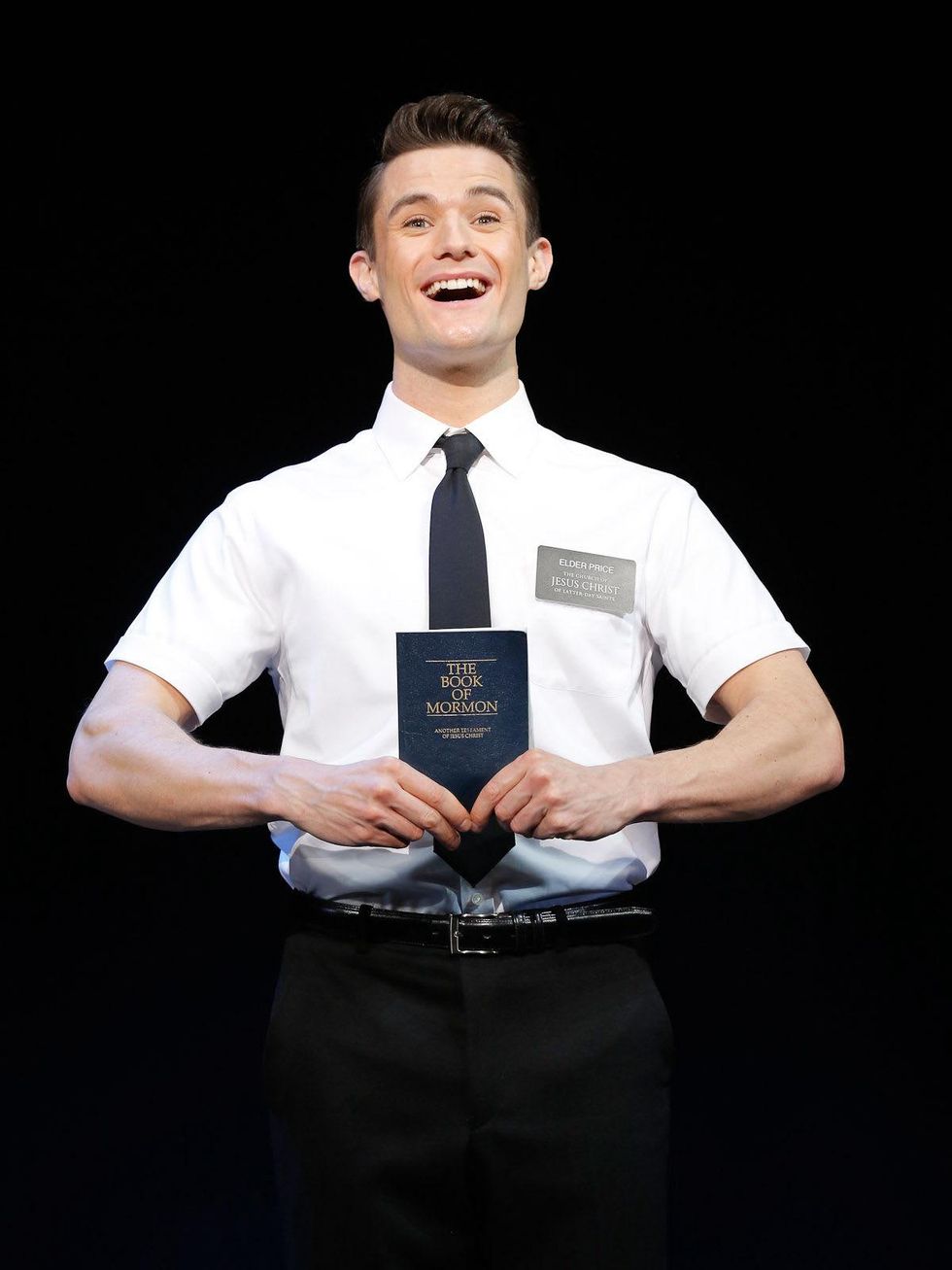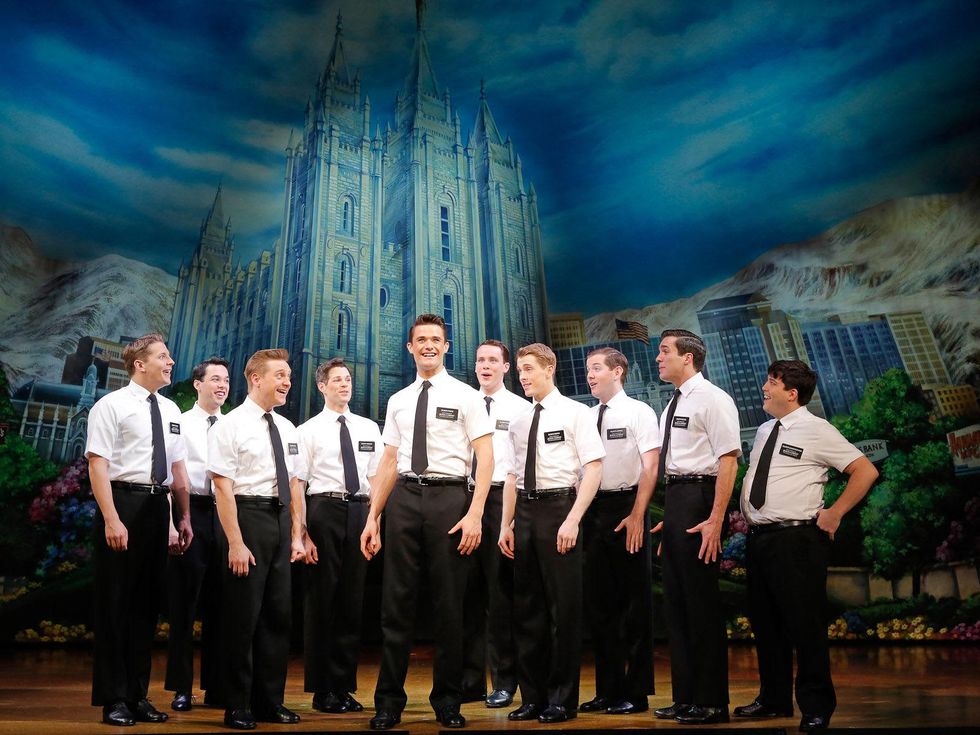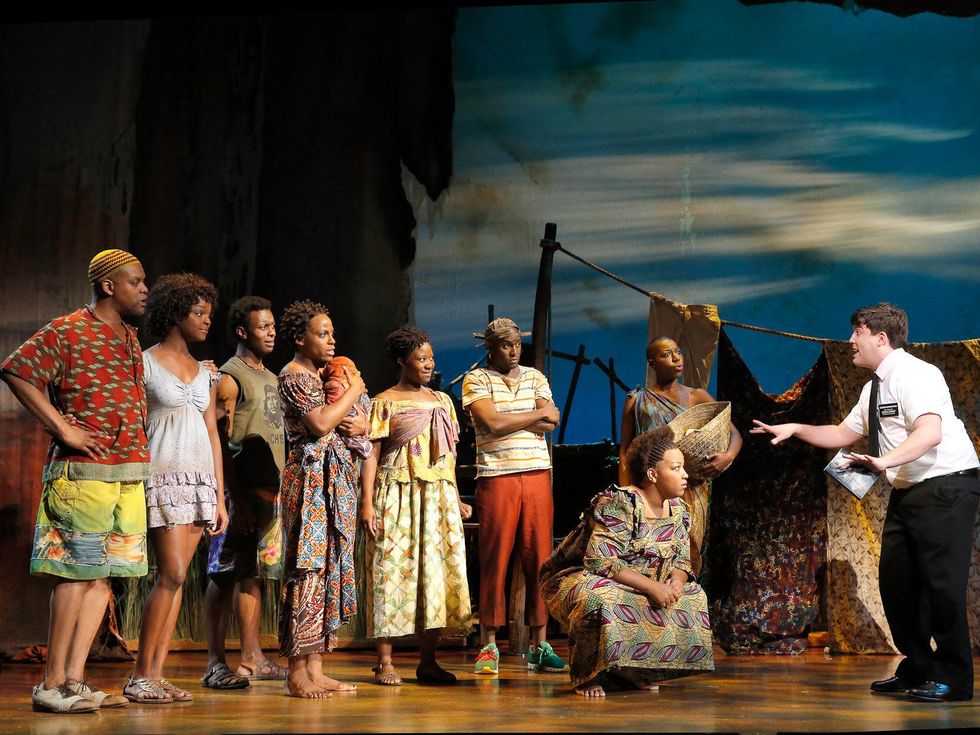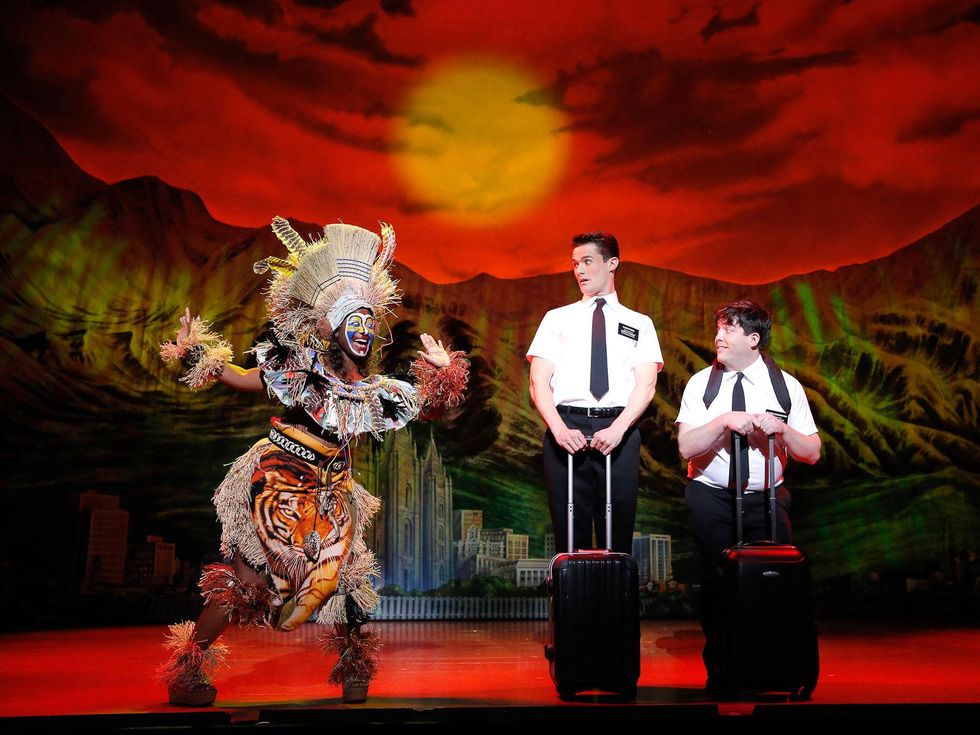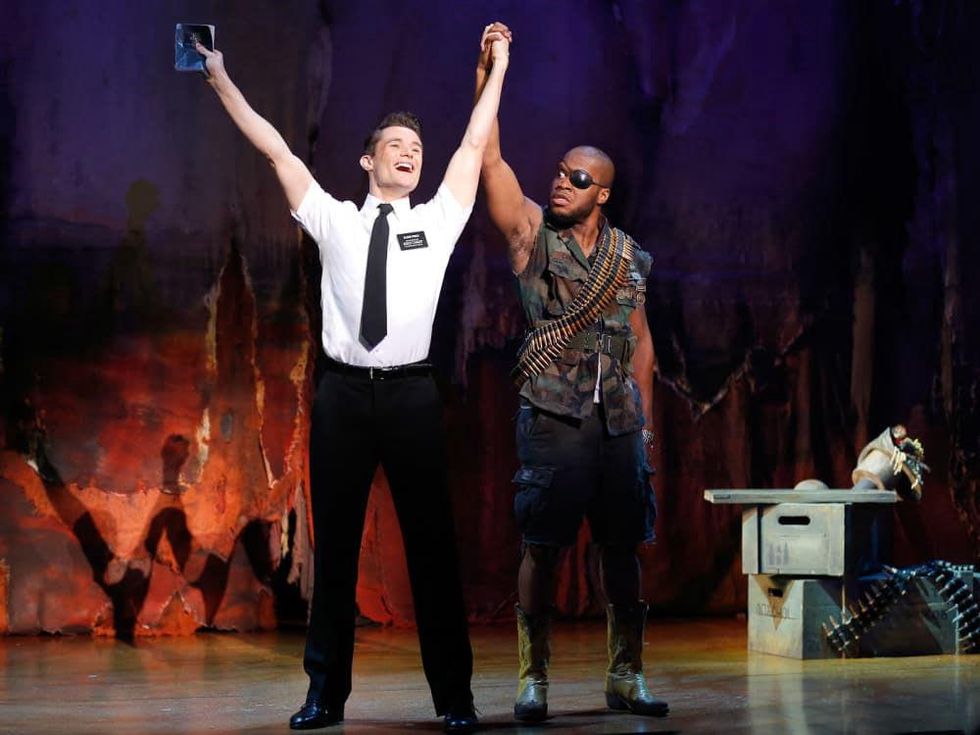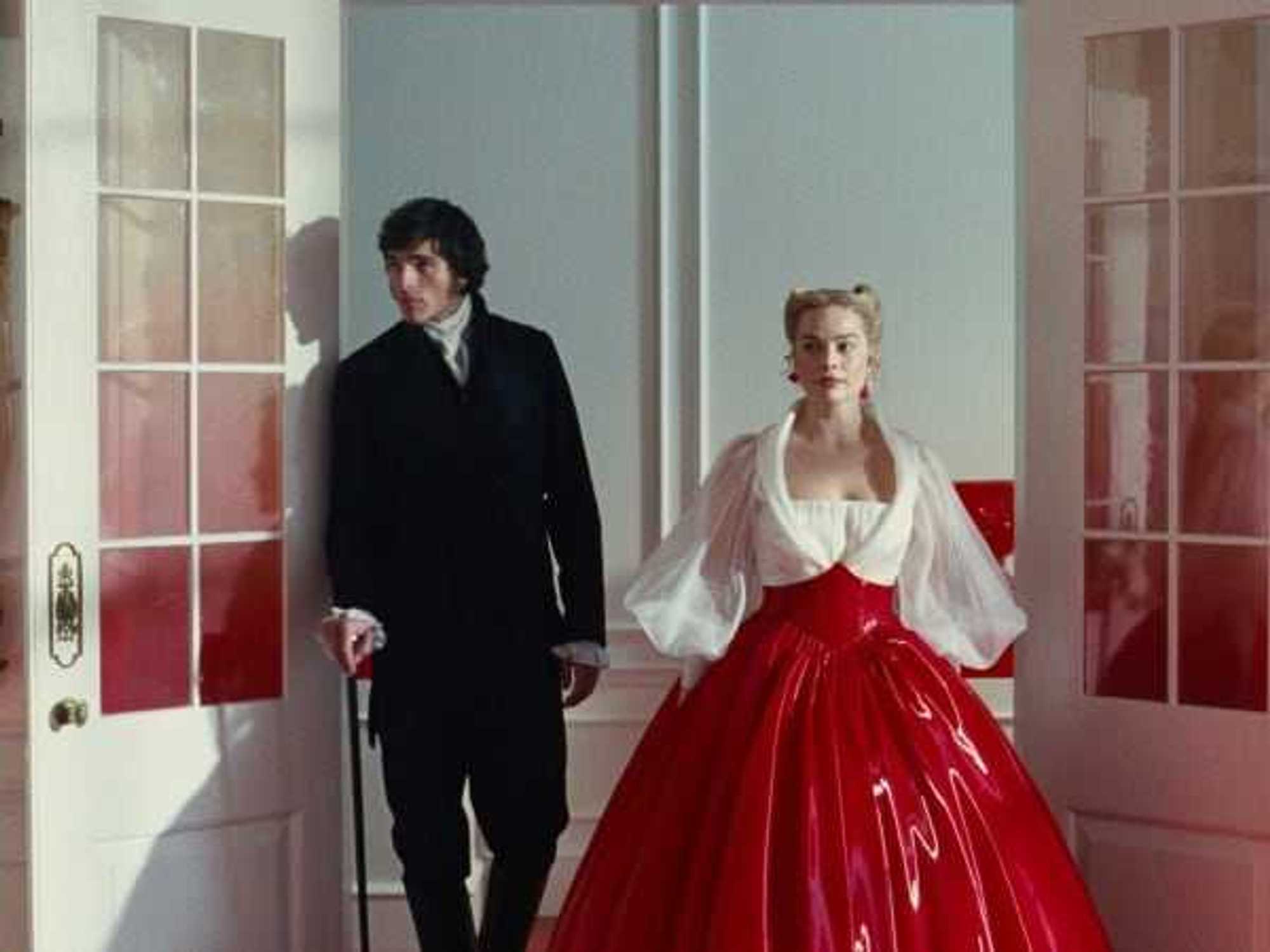The Review Is In
Restoring our faith in musicals: The Book of Mormon brings sacrilegious hope to Houston
Those smiling, singing missionaries from The Book of Mormon have finally arrived in Houston ready to convert us all, and my reaction to their ringing of our doorbell is: Hasa Diga for taking so long.
If you know what "Hasa Diga" means you are either a musical theater geek who bought your tickets months ago or speak an imaginary Ugandan dialect made up by South Park creators Trey Parker, Matt Stone and Avenue Q creator Robert Lopez.
After taking Broadway by a storm of pressed-white-shirt-wearing, caffeine-free, earnest backup dancers and gathering nine Tony Awards, it seems like it's taken forever for the traveling production to hit the road and give the flyover states a chance to be outrageously offended while giving audiences a reason to laugh their asses off. The spectacle is in Houston, via Gexa Energy Broadway at the Hobby Center, and runs through Sept. 15.
If you have somehow missed the (deserved) hype, The Book of Mormon, with book and lyrics by Parker, Stone and Lopez, is a feel-good, old-fashion musical about AIDS, female genital mutilation, rape, dysentery, murderous war lords, the loss of hope and the death of faith in the existence of a benevolent God. There's also some spectacular tap dancing throughout the show.
The play has so much profanity and hummable, blasphemous songs, which are equal opportunity offenders of all of humanity, but those many controversial dancing elements tend to disguise a classic fish-out-of-water plot. The characters in the play question and doubt. Yet when they allow their beliefs to evolve and adapt and when they finally understand the transcendental power of a good metaphor, enough hope is resurrected to help them sing through life's tragedies.
As the play begins, two innocent, 19-year-old Mormon men with the ironic title of Elders, Kevin Price and Arnold Cunningham, are sent to Uganda. According to their religion, God loves Mormons and wants as many as he can get, be they Japanese, French or Ugandan. Elder Price, however, would much rather be baptizing Orlandoans in the shadow of the Epcot Center's ball. Elder Cunningham is just so happy to finally have a friend — even if that friend has been assigned — and he's ready and excited to go anywhere with his pal.
What surprised me about this filthy, profane musical is how much those South Park guys have created a show that's an affirmation, not just of faith, but of religion in general.
Elders Price and Cunningham, played by Mark Evans and Christopher John O'Neill respectively, find themselves immediately out of their depth when they minister to a village plagued by an actual plague, poverty and a neighborhood warlord.
The duo's district head, Elder McKinley, played by Grey Henson — who manages to steal every scene he's in — is not much help with his advice in the song "Turn It Off."
When faced with real violence and death, Elder Price is ready to abandon his partner and maybe his church, while Elder Cunningham finds new strength by giving in to his phenomenal lying abilities — what his family calls an affliction.
In any world created by Parker and Stone and sometimes the real world, lying is synonymous with storytelling. As Arnold Cunningham jazzes up the Book of Mormon with Ewoks and Hobbits and adds lessons about preventing the transmission of AIDS and the sacredness of the clitoris, the villagers begin to offer their respect to Arnold and his church, if only because the stories are "so fucking weird."
The third main character in the show is the innocent and, of course, beautiful villager Nabulungi, played by Samantha Marie Ware. Nabulungi, who brings her family and neighbors into the fold, is the first to believe in the tales and lessons Cunningham "reads" (a euphemism for fabricates) from the Book of Mormon.
All three characters have inevitable losses of faith, but Ware's depiction of Nabulungi at the moment of the death of her dreamed promised land, free of violence and hunger, is particularly profound.
Mark Evans has the difficult task of making the audience feel sympathy for Elder Price, a character who even the dream-sequence Jesus calls a dick. Evans usually succeeds; his best scenes are ones in which Elder Price becomes Kevin, a confused kid who can't understand why God no longer seems to have a special destiny for him.
O'Neill also succeeds in taking Arnold Cunningham from bumbling sidekick to unsung hero to a guy who somehow manages to be an even bigger dick than Elder Price. The character finally lands on prophet, in the way many holy books describe men and women of God, as sometimes lost souls who manage to muddle through by being true to their gifts. In Arnold's case that gift would be the skill to spin a good yarn.
This was my own baptism into The Book of Mormon, though I've owned the Broadway cast album since 2011. What surprised me about this filthy, profane musical is how much those South Park guys have created a show that's an affirmation, not just of faith, but of religion in general.
____
The Book of Mormon, presented by Gexa Energy Broadway at the Hobby Center, runs through Sept. 15 at the Hobby Center for the Performing Arts. Tickets start at $49 and can be purchased online or by calling 1-800-952-6560.
